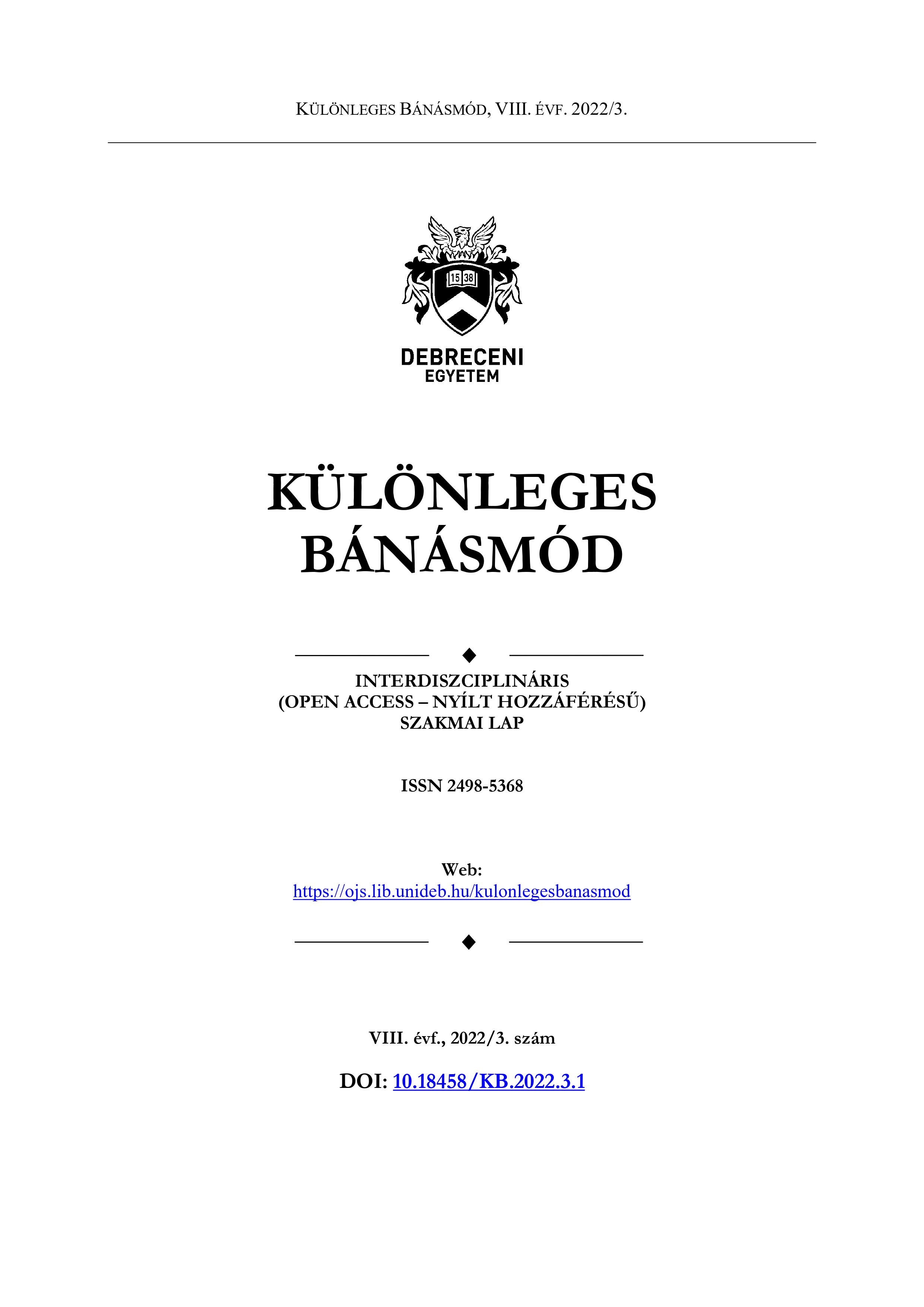THE ISSUES OF TEACHING FOREIGN LANGUAGES TO LEARNERS WITH A SPECIFIC LEARNING DISABILITY
Author
View
Keywords
License
Copyright (c) 2022 Dr. Nemes Magdolna

This work is licensed under a Creative Commons Attribution-NonCommercial-NoDerivatives 4.0 International License.
How To Cite
Abstract
To make language teaching effective, it is important to consider the forms of language teaching, especially when we talk about learners with a specific learning disability. Our theoretical paper tries to review the literature of language teaching and dyslexia. The goal of our paper is to briefly present the definitions of dyslexia as well as to describe its signs and symptoms. This paper deals with the issues of language acquisition and language teaching, focusing on the difficulties which emerge when learning English. A dyslexic learner usually has difficulties in reading and writing in his L1, their reading is slower and they have problems with reading comprehension too. Besides the possible difficulties, we also discuss the strengths of dyslexic learners as their most important compensating skills are global/holistic thinking, visualisation, creativity, and problem-solving. Our paper also deals with the regulations governing language teaching in schools and the issues of choosing the language to learn at school. In higher education and in the world of work, speaking foreign languages and having language certificates are advantages, consequently, it is necessary to have appropriate course material. Language learners with dyslexia also have to take a school-leaving exam /GCSE in a foreign language, which is why our paper also deals with the output of language teaching in schools as well as the possibilities for dyslexic candidates offered by some Hungarian language exams (ORIGO, BME, DExam, ECL) The paper also mentions the issues of course material and language course books, as well as addressing the question of inclusive teaching for dyslexic learners. We also discuss the competencies required by a Special Educator as a language teacher, as he/she can help students, not only in learning English but also in the integration process.


 https://doi.org/10.18458/KB.2022.3.31
https://doi.org/10.18458/KB.2022.3.31